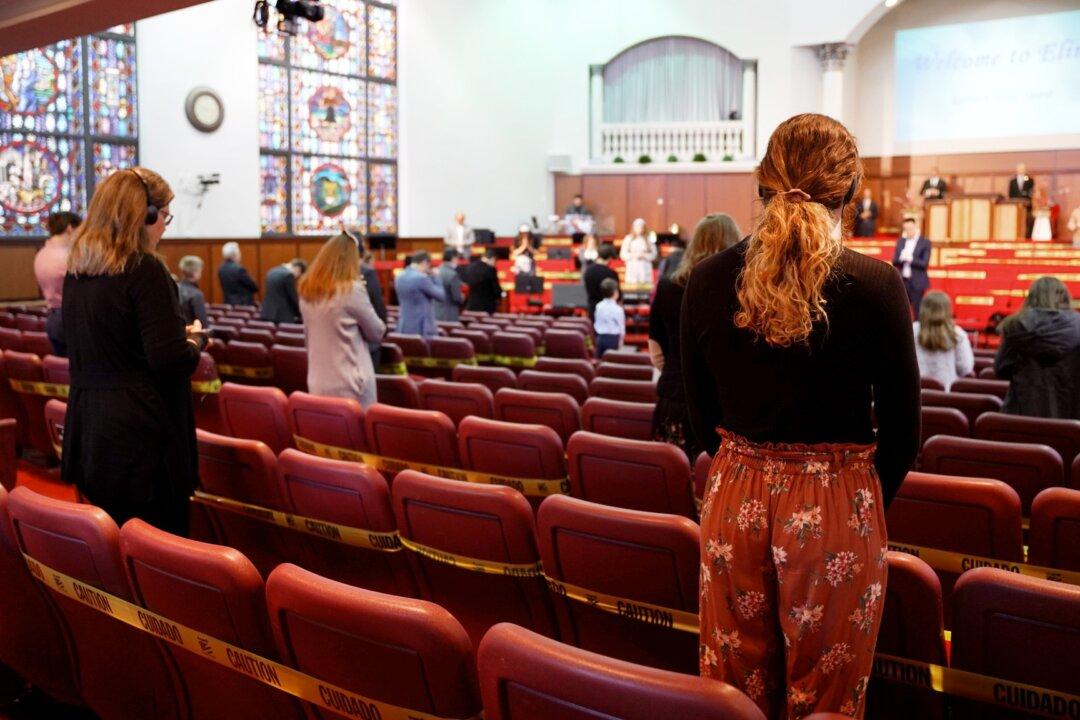CHICAGO—On May 10, Pastor Cristian Ionescu opened his Elim Romanian Pentecostal Church in Chicago for the first time in two months.
He welcomed around 100 congregants—10 times the number allowed by his governor, J.B. Pritzker.

CHICAGO—On May 10, Pastor Cristian Ionescu opened his Elim Romanian Pentecostal Church in Chicago for the first time in two months.
He welcomed around 100 congregants—10 times the number allowed by his governor, J.B. Pritzker.